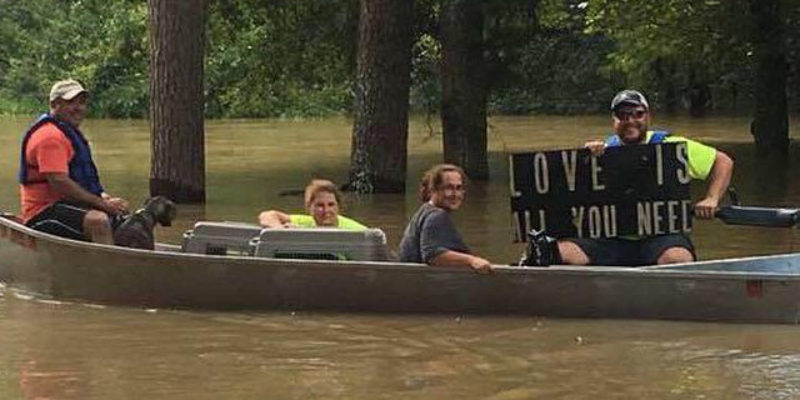This from an appearance the Baton Rouge congressman made on WRKF radio this morning.
“We have been doing every single thing we can to save ourselves and to save the government money,” Graves explains. “We rescued ourselves; we largely sheltered ourselves; we fed ourselves; and we stripped and gutted these homes ourselves.
“This isn’t a community who’s sitting around waiting – we are being incredibly proactive, incredibly self-reliant – but we are beginning to hit that wall of progress and are going to need federal assistance to get us beyond here.”
And, he says, the delegation has a promise.
“We secured a commitment from the leadership and from the Appropriations chairman in the House that we are going to sit down to take a fresh look at all this data. We are confident that the data shows that not millions are needed, not hundreds of millions are needed, but billions more are needed to address some of the challenges down here.”
In addition, Graves says the lame duck Congress will have no choice but to take up another appropriations bill.
“The continuing resolution that’s funding government right now expires on December 9th.”
So far, only a bit less than $500 million has been appropriated for flood relief. Louisiana has asked for something in the neighborhood of five times that amount, but getting $500 million was a bit of a chore given the election-year politics in Congress and the demands and deal-making that must be overcome.
“The Flint, Michigan, money; trying to shut down Congress; making it a Republican versus Democrat – I mean, this is people’s lives, livelihoods, futures, homes – and you’re going to try and politicize that? Come on!” he says, sarcastically.
How much damage was actually done by the flooding in South Louisiana? Perhaps north of $10 billion, according to insurance industry analysts…
Catastrophe modeling firm AIR Worldwide estimates that industry ground-up insurable losses—which include exposures eligible for coverage (regardless of whether they are actually insured) without any application of deductibles or limits—from the flooding in Louisiana caused by excessive rainfall during August 2016 will be between $8.5 billion and $11 billion. AIR Worldwide is a Verisk Analytics business.
“Extreme rainfall-induced flash flooding and river flooding on the floodplain have wreaked havoc in Louisiana, breaking records and damaging property throughout many parishes,” said Dr. Boyko Dodov, vice president and director of flood modeling at AIR Worldwide. “Beginning around August 10, 2016, rainfall continued almost perpetually for approximately seven days, resulting in accumulations of around 7.1 trillion gallons in Baton Rouge and the surrounding suburbs, according to reports, reaching upwards of 30 inches in some areas.”
…
According to Fitch, the state currently estimates its net direct operating expenses related to the floods (after FEMA match aid) to be $81 million. Gov. Edwards is asking for $2.8 billion total, hoping Congress will provide additional disaster aid when it returns to work after the November election.
“I don’t want you all to focus so much on what’s going on in Congress. I want you all to focus on what we’re going to do for the people of Louisiana, and the congressional delegation is going to make sure we get the assistance that we need,” Edwards said.
That block grant aid will be the focus of the task force’s rebuilding plans. The group includes economic development officials, local government leaders, state lawmakers and community representatives.
While the money remained uncertain, Edwards urged the group to work quickly on devising proposals for spending whatever aid may be received.
He said that would help members of Louisiana’s congressional delegation make the state’s case to their colleagues before the end of year that the money will be spent wisely, including on making communities more resilient.
“We have to make sure that the federal government understands that this is an investment in our future,” he said.
“The climatologists are telling us 7 trillion gallons of rain fell in 48 hours,” Edwards said. To put that in perspective, he explained: “It takes the Mississippi River 18 days to discharge that much water into the Gulf of Mexico.”
Advertisement
Advertisement

